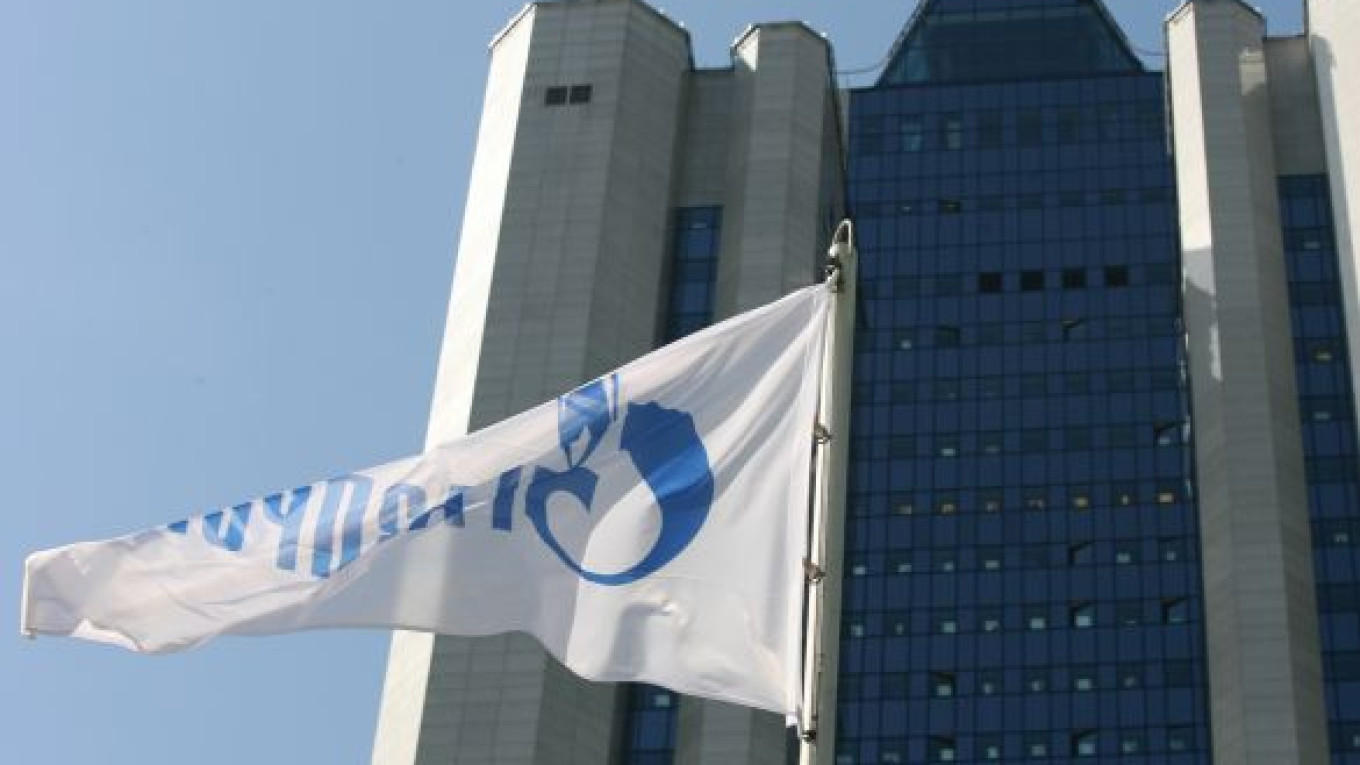Gazprom said Monday that its net profit in the first six months of the year fell by nearly half, which the company attributed to falling demand for its gas in Europe and at home.
Profit fell 48 percent to 296.2 billion rubles ($10.22 billion), from 573.7 billion rubles during the same period in 2008, the gas export monopoly said in a statement. Revenue was down 7 percent to 1.64 trillion rubles ($56.5 billion). Second-quarter net profit was down 36 percent to 192.5 billion rubles, while revenue for the period fell 16 percent to 708.3 billion rubles.
Analysts said the results were largely in line with expectations. Gazprom’s shares finished up 3.9 percent on the MICEX, although they lagged the exchange’s 30-stock index, which closed up 5.1 percent.
Third-quarter results may be even lower, said Alexander Nazarov, an analyst at Metropol.
“The third quarter is traditionally a weak season for gas producers, as heating is off in the summer and industrial capacities were not operating at full capacity,” he said.
“As exports only started to resume in September and gas prices were declining in the third quarter, we expect third-quarter results to be still negative, while next year an improvement would be visible.”
Operational expenses were up 16 percent to 1.2 trillion rubles in the first half, including 190 million rubles linked to higher prices for Central Asian gas, the company said. Gazprom spent 52 percent less on gas purchases in the second-quarter, or 135.3 billion rubles, compared with 281.1 billion rubles in the first quarter.
In July 2008, Gazprom signed a contract to buy Turkmen gas based on European prices, dramatically increasing costs for the once-cheap Central Asian gas. But the ensuing economic crisis dramatically reduced demand for gas, and left Gazprom struggling to find markets for its own volumes.
In April, Gazprom halted purchases from Turkmenistan after a pipeline explosion there. Ashgabat blamed Gazprom for deliberately lowering the pipeline’s pressure to cause the blast, although Gazprom said it gave adequate notice.
The disagreement came after Ashgabat raised gas prices and threatened to ban the re-exports of its gas, which would make it useless for Gazprom to buy.
After months of negotiations, Gazprom deputy chief Alexander Medvedev said in September that Gazprom would resume purchases from Turkmenistan, without disclosing the details of the agreement.
The company also reported that net debt was up 31 percent in the first half, to 1.33 trillion rubles, compared with 1.02 trillion rubles during the same period of 2008.
Gazprom’s first half earnings before interest, taxes, depreciation and amortization stood at 553 billion rubles.
The company said it incurred additional debt because of ruble depreciation, but Nazarov stressed that the company also had to borrow heavily to acquire a 20 percent stake of Gazprom Neft, its oil arm, from Italy’s Eni in April for $4.2 billion.
A Message from The Moscow Times:
Dear readers,
We are facing unprecedented challenges. Russia's Prosecutor General's Office has designated The Moscow Times as an "undesirable" organization, criminalizing our work and putting our staff at risk of prosecution. This follows our earlier unjust labeling as a "foreign agent."
These actions are direct attempts to silence independent journalism in Russia. The authorities claim our work "discredits the decisions of the Russian leadership." We see things differently: we strive to provide accurate, unbiased reporting on Russia.
We, the journalists of The Moscow Times, refuse to be silenced. But to continue our work, we need your help.
Your support, no matter how small, makes a world of difference. If you can, please support us monthly starting from just $2. It's quick to set up, and every contribution makes a significant impact.
By supporting The Moscow Times, you're defending open, independent journalism in the face of repression. Thank you for standing with us.
Remind me later.


